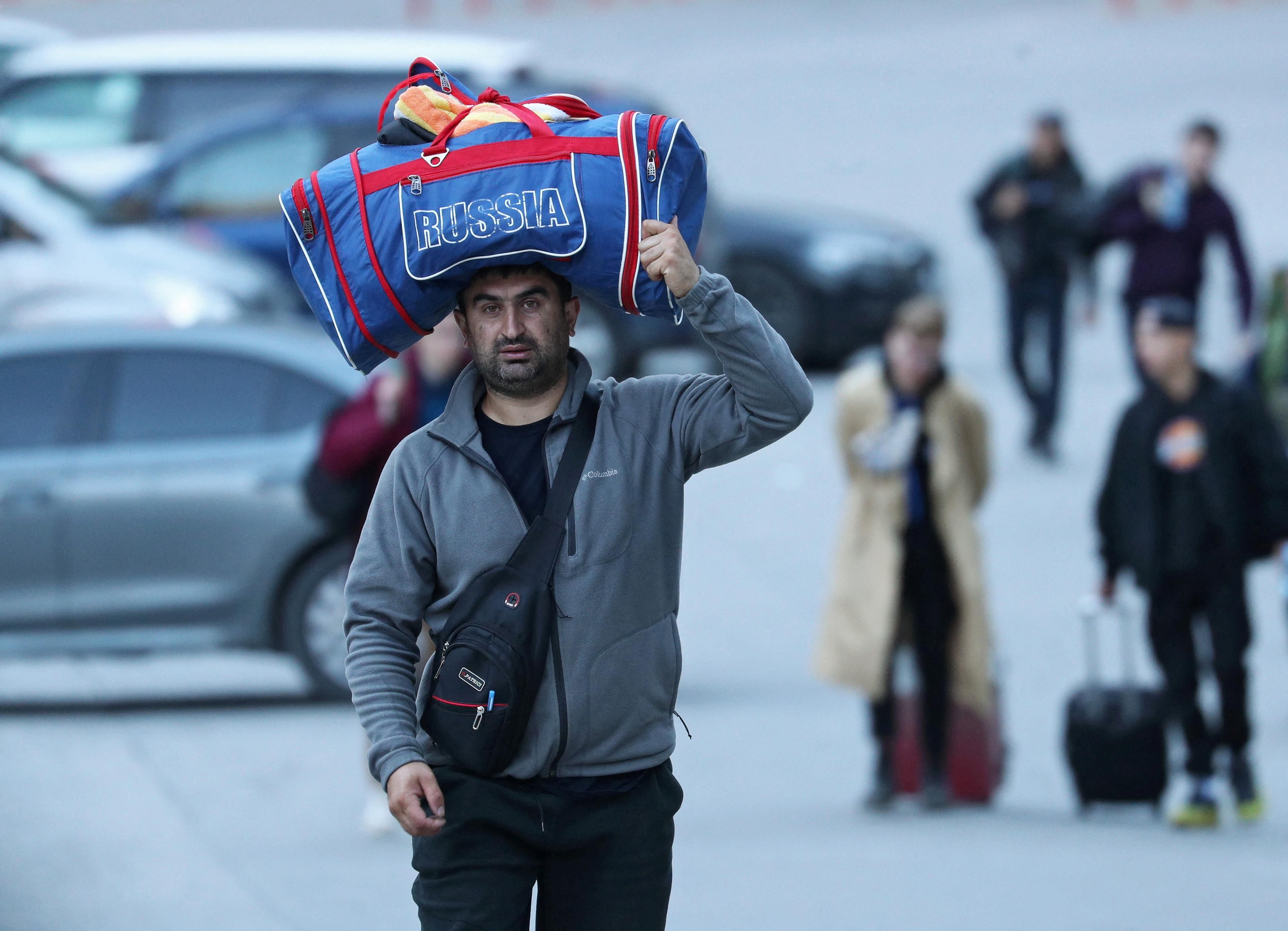In the week since Vladimir Putin declared a partial mobilization, roughly 200,000 draft-eligible Russian men have fled the country, preferring to live in Russia’s neighboring countries as refugees rather than as invading soldiers.
But while most of Russia’s post-Soviet neighbors have welcomed them, the European Union – which has already all but stopped issuing visas to Russians anyway – is split over how to handle a fresh wave of asylum-seekers coming from a country that the bloc is now all-but-directly at war with.
The EU’s president, Charles Michel, says members should admit them as conscientious objectors. Germany and France have signaled a willingness to do so. But the Baltic states, those nearest the Russian border, have a different view: nothing doing.
What’s the right policy? Here are some arguments both for and against rejecting Russian asylum-seekers.
Keep 'em out because …
They are a security risk. EU countries worried about fifth columnists or saboteurs need hundreds of thousands of young Russian men right now like they need a hole in the head. The EU isn’t directly at war with Russia, but it’s fair to assume the bloc’s energy infrastructure and military supply depots are tempting targets for Russian spooks these days. The recent, so-far-unattributed, explosions along the Nord Stream pipelines will only heighten these fears. What’s more, the Baltics have social stability to worry about – they are small countries with sizable, and not-always-happy ethnic Russian minorities to begin with. Don’t light matches near a tinderbox.
Russians should oppose the war at home, not ride it out here. The Estonian Prime Minister says, “Every citizen is responsible for the actions of their state, and citizens of Russia are no exception.” Latvia’s Foreign Minister was less diplomatic, tweeting that if Russians were “fine with killing Ukrainians” earlier in the year, they don’t get to flee their government’s war now.
What little Russian polling there is seems to show strong support for Putin and his “special military operation.” While it’s great so many Russian men now oppose the war — or at least don’t want to die in it themselves — they should be protesting on the streets of Moscow, not looking for work on the streets of Riga.
Why help Putin? Although there are reports of Russian border guards stopping draft dodgers, the frontier is, broadly speaking, open, and there’s probably a reason for that: it rids Putin of the most troublesome objectors as well as the people whose inclusion in the ranks would only sap already-low morale anyway. So if Putin too prefers his draft dodgers on the streets of Riga than on the streets of Moscow, then don’t help him out. As Johns Hopkins Russia scholar Sergey Radchenko has suggested: whatever Putin does with the border, do the opposite.
These aren’t Syrians or Afghans. In recent years, the EU as a bloc has accepted more than a million asylum-seekers from countries ripped apart by civil war. But in this case, Russia is the one doing the ripping. Russians leaving now aren’t fleeing death or destruction. They are — as Latvia’s foreign minister recently put it — simply refusing to “fulfill one’s civic duty in Russia.” Sorry, but that’s not grounds for asylum.
So much for the slam-the-door arguments. What about those for letting Russians in?
No, Russians aren’t responsible for Putin’s decisions. Russia is — we can probably all agree — an unfree, authoritarian country where the people, by definition, have little say over what their government does. So it’s not fair to hold Russians accountable for the actions of their government in the same way as we might for a democracy. Those who want to leave are leaving precisely because they are conscientious objectors to an unjustifiable war launched by a person who is not accountable to them. There is a moral imperative to welcome them.
Sapping Putin’s cannon fodder and brain tank is good. Putin is desperate to rustle up warm bodies to bolster a flagging war effort. Absorbing as many of those bodies as possible is simply good policy, as it will force him to dig deeper into society for the forces he needs. That, in turn, increases the prospect of a broader backlash. What’s more, anything to accelerate Putin’s brain drain is good policy as well — there are a lot of smart young people among the draft dodgers!
Well, over to you, dear reader: if you were in charge of EU asylum policy, what would you do?
Let us know by responding directly or by emailing us here. We’ll include the best responses in an upcoming signal. Please be sure to include your name and location as you’d like them to appear.This article comes to you from the Signal newsletter team of GZERO Media. Sign up today.
